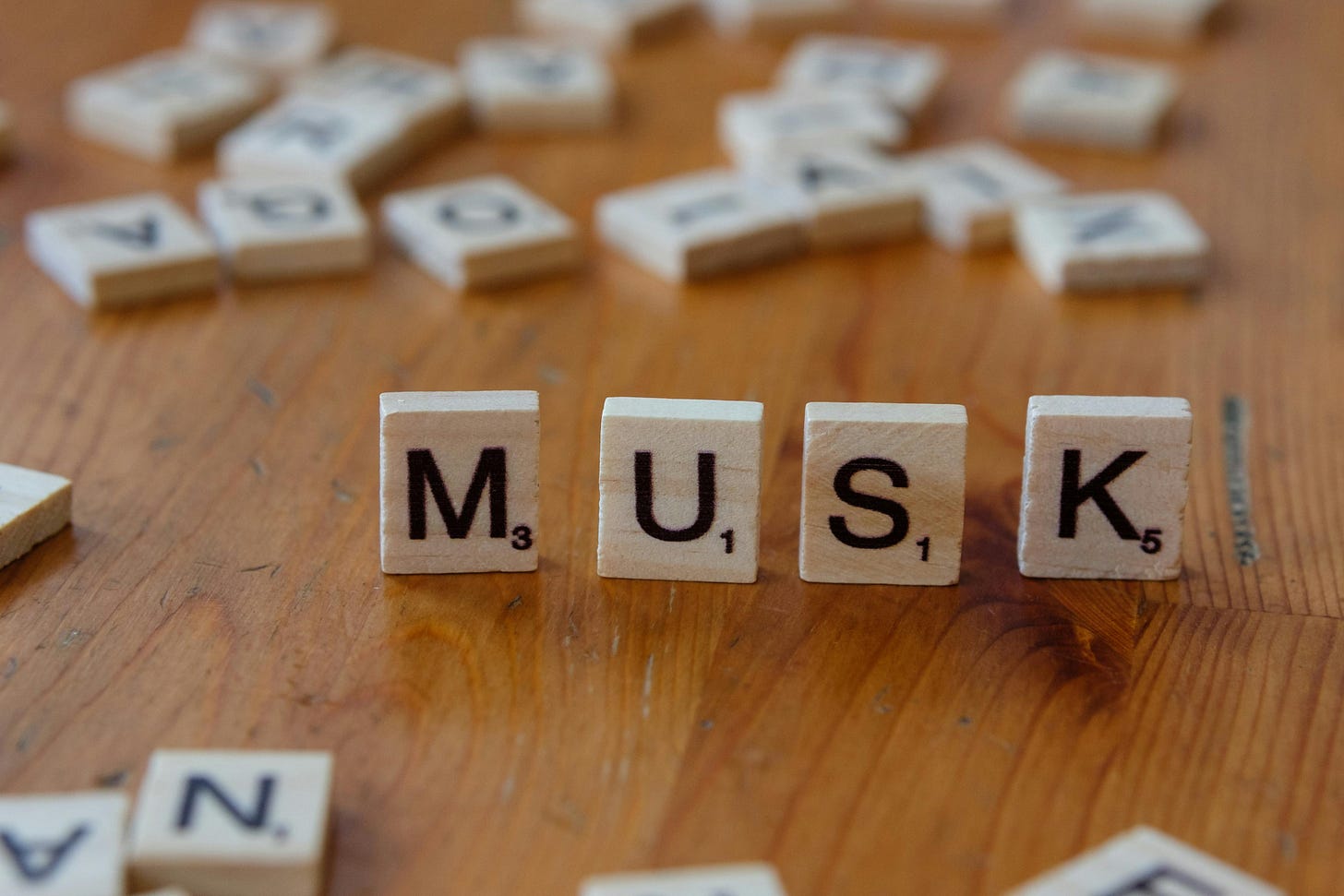Why I’m resigning my editorship at a Royal Society journal
It’s time to take a stand, small as it may be, and to distance myself from the Royal Society

Yesterday I wrote a piece for the Guardian about my decision to step down as an Associate Editor at the Royal Society’s journal Open Science. The response has been overwhelming. Hundreds of people have been in touch thanking me for taking a stand, small as it may be. I’ve been really touched by the support and I really appreciate it.
If you want to read the piece (which is almost word for word my resignation email with a bit of added context) then I’ve reproduced it below.
Fellows of the Royal Society met yesterday to discuss, as they put it, “Fellows’ behaviour”. In light of the resignation of two fellows of the Royal Society and an open letter signed by nearly three and a half thousand scientists, many, including me, expected the fellows to be discussing the behaviour of one particular fellow: Elon Musk.
The Royal Society, as one of the world's most esteemed scientific institutions, bears the responsibility of maintaining standards among its fellows. Elon Musk, admitted as a fellow in 2018 for his technological innovations, has recently engaged in behaviour that contravenes the Society's code of conduct. In particular, many scientists have taken issue with his assault on the conduct of science in the United States and beyond as head of the Trump administrations Department of Government Efficiency (DOGE) as well as his malicious accusations towards public scientists (like Anthony Fauci) and other public figures.
Musk is an important figure (some would argue the most important) within a US administration that is laying siege to science and to scientific inquiry itself. The new administration’s executive orders have restricted research, silenced climate scientists and cut funding, as part of a systematic targeting of the scientific community.
Taking action against a member whose behaviour is so openly in opposition to the Society's values and code of conduct, the Royal Society would have affirmed its commitment to ethical standards and helped to reinforce public trust in science.
So I was more than disappointed to read the statement released by the Royal Society after the meeting which made no mention at all of Musk. The statement did recognise “the need to stand up for science and for scientists around the world in the face of the growing challenges science faces”, but with out concrete actions these words ring hollow to me.
The Royal Society’s code of conduct for fellows states that “Fellows and Foreign Members shall not act or fail to act in any way which would undermine the Society’s mission or bring the Society into disrepute.” It is clear that Musk’s behaviour has contravened this rule. So why, even now, have the Royal Society not spoken out specifically against his actions?
Some have argued that expelling Musk could harm public trust in science; that by blurring the boundaries between science and politics it damages science’s integrity. I believe that this perspective overlooks the critical role that scientific institutions play in upholding ethical standards and defending the integrity of science, especially at times when science and scientists are subject to threats and intimidation from political institutions.
I was once told that “Everything is political, especially the things that people tell you are not political. Those are the most political of all” and there is some truth in that, when it comes to science. The intersection of science and politics is both inescapable and of vital importance. Scientists possess unique expertise that is crucial for informed policy-making and societal progress. Embracing political engagement allows scientists to fulfil their ethical responsibilities, defend the integrity of their work, and contribute meaningfully to addressing the complex challenges facing society today.
Disengaging in the political issues that surround and influence science is not the virtue that some commentators would have you believe. If anything it is a betrayal of the profound impact that science can and should have on the world.
In particular, a failure to act on Musk’s behaviour will only embolden those who seek to exert political influence over science and scientists and erode its foundational principles.
So for me it’s time to take a stand, small as it may be, and to distance myself from the Royal Society until such a time as they have the moral courage to specifically denounce the actions that Elon Musk is taking to undermine science in the United States and elsewhere. I will be resigning my position as Associate Editor at the Royal Society’s journal Open Science with immediate effect. I will no longer submit my research to Royal Society journals or act as a peer reviewer for them. I would urge my colleagues to do the same.
The Royal Society is correct in its statement, that it needs to “advocate for science and scientists at a time when these are under threat as never before and yet at the same time have never been more necessary for humanity at large”, but without concrete action to enforce their own rules and defend their own scientific integrity, I’m not sure I can have confidence in them to advocate for the broader scientific community.




I should have added, well done Kit, definitely the correct decision. I hope others take similar steps.
It seems dubious why he was admitted in the first place. He knows how to buy innovation and he also knows how to destroy innovation.